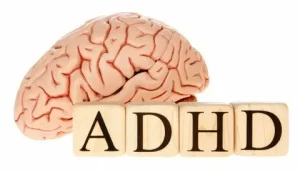
Attention-Deficit/Hyperactivity Disorder (ADHD) is widely discussed in the context of children, but it also affects millions of adults. For many, ADHD symptoms persist into adulthood, while others may only be diagnosed later in life. This article explores the challenges adults with ADHD face, the unique ways it can manifest in their lives, and strategies that can make day-to-day navigation easier.
Understanding ADHD in Adults
ADHD is a neurodevelopmental disorder characterized by symptoms of inattention, hyperactivity, and impulsivity. While these traits are often attributed to children, adults experience ADHD differently. In adulthood, hyperactivity may present as restlessness rather than physical movement. Similarly, impulsivity may show up as impulsive spending, quick decision-making, or interruptions during conversations, while inattention can affect their focus on complex tasks.
An estimated 4-5% of adults have ADHD, but many go undiagnosed. Unlike childhood ADHD, where symptoms can be attributed to school or behavior, adults face symptoms in more subtle but equally impactful ways. Struggles with organization, staying focused, meeting deadlines, and managing daily responsibilities can create difficulties in professional and personal life. Understanding these symptoms and how they appear in adulthood is a critical step toward managing and living with ADHD effectively.
Challenges Faced by Adults with ADHD
Difficulty with Focus and Attention
Adults with ADHD often find it challenging to stay focused on tasks, especially those that lack immediate rewards or are repetitive. This can affect productivity, as they might frequently start multiple tasks without completing them, or struggle to maintain attention during meetings, lectures, or lengthy projects.
Time Management and Organization
ADHD can impair executive functioning—the mental processes that enable people to plan, prioritize, and execute tasks. For adults, this might mean trouble meeting deadlines, forgetting appointments, or having difficulty organizing schedules. A desk cluttered with papers, a to-do list that feels overwhelming, or a sense of panic at deadlines can be common.
Impulsivity
Impulsivity can lead to making hasty decisions, whether financial, professional, or personal. This trait might contribute to frequent job changes, financial instability, or strained relationships. For example, an individual might purchase something expensive on impulse, later feeling regret or embarrassment.
Memory Issues and Forgetfulness
Memory challenges are common, leading to frequent forgetfulness. Misplacing items, forgetting to return calls, or struggling to remember commitments can create challenges. These issues often fuel feelings of frustration and may lead to self-esteem issues.
Relationship Difficulties
ADHD can put strain on relationships. Difficulty listening, impulsive responses, or forgetfulness can frustrate partners, friends, and coworkers. Misunderstandings might arise due to perceived irresponsibility or inattentiveness, creating additional challenges for someone with ADHD.
Hyperfocus
While ADHD generally affects the ability to sustain focus, it can also lead to “hyperfocus,” a state where an individual becomes deeply engrossed in a task for hours. This may seem advantageous but can lead to neglect of other responsibilities, causing issues with time management and task prioritization.
Strategies for Navigating Life with ADHD
Living with ADHD as an adult can be challenging, but various strategies can help in managing symptoms and creating a more balanced life.
Time Management Techniques
Many adults with ADHD find structure to be a helpful tool. Setting alarms, using a planner, or creating a daily to-do list can provide needed structure. Breaking tasks into smaller steps and assigning time limits to them helps manage focus and completion rates. Visual reminders, like sticky notes or digital alerts, are also useful.
Mindfulness and Meditation
Mindfulness practices, including meditation, have been shown to help individuals with ADHD improve their focus and emotional regulation. Simple techniques, like deep breathing or brief mindfulness exercises, can be useful in moments of restlessness or distraction. Regular mindfulness practice may also reduce stress, which is often exacerbated by ADHD.
Professional Support and Therapy
Cognitive Behavioral Therapy (CBT) is particularly effective for adults with ADHD. CBT helps individuals develop coping mechanisms, build self-awareness, and practice time management. Coaches specializing in ADHD can also provide support, helping individuals set and accomplish personal and professional goals.
Medication
Medications such as stimulants (like Adderall and Ritalin) and non-stimulants can help improve focus and reduce impulsivity. Medication, however, is not a cure and works best in combination with lifestyle changes and therapeutic support. Consulting with a medical professional can help adults determine the most effective approach.
Establishing Routines
Predictable routines create consistency, which can be a huge advantage for adults with ADHD. Regular routines in morning and evening habits, meal preparation, and work schedules can minimize stress and support productivity.
Limit Distractions
Creating an environment with minimal distractions can help focus on tasks. This might mean working in a quiet space, keeping the workspace organized, or using tools to block social media during work hours. Keeping only the necessary materials on hand can reduce distractions and improve focus.
The Importance of Self-Compassion
Self-compassion is a cornerstone in managing adult ADHD. Adults with ADHD often struggle with feelings of guilt, shame, or inadequacy due to perceived failures or difficulties with tasks others find simple. Embracing ADHD as a part of one’s identity, rather than a hindrance, can alleviate some of these negative emotions.
A key aspect of self-compassion is recognizing that ADHD has unique strengths as well. Many individuals with ADHD are known for their creativity, problem-solving skills, and adaptability. Acknowledging these positive traits can help counterbalance the struggles associated with ADHD.
Conclusion
ADHD in adulthood presents unique challenges, but with the right strategies, individuals can navigate life effectively. Developing time management skills, utilizing professional support, establishing routines, and practicing self-compassion can make a significant difference. While managing ADHD is an ongoing process, understanding the condition and creating tailored solutions can empower adults to lead fulfilling and productive lives. With a balanced approach, adults with ADHD can harness their unique qualities to thrive in both personal and professional spheres.